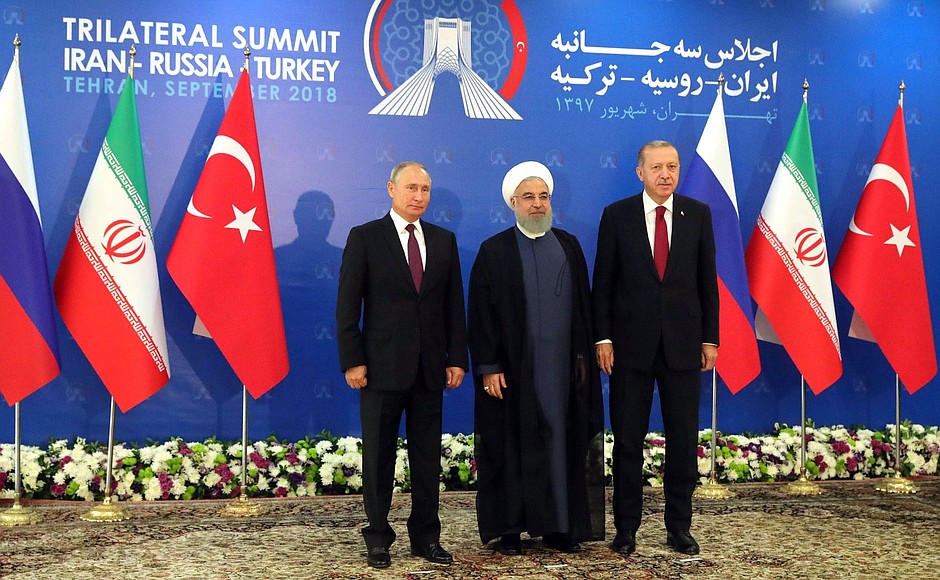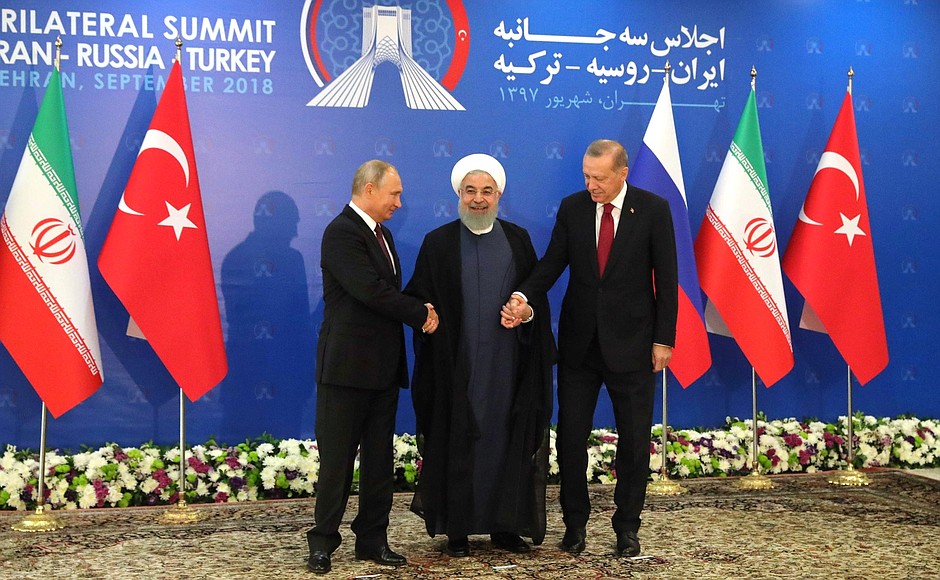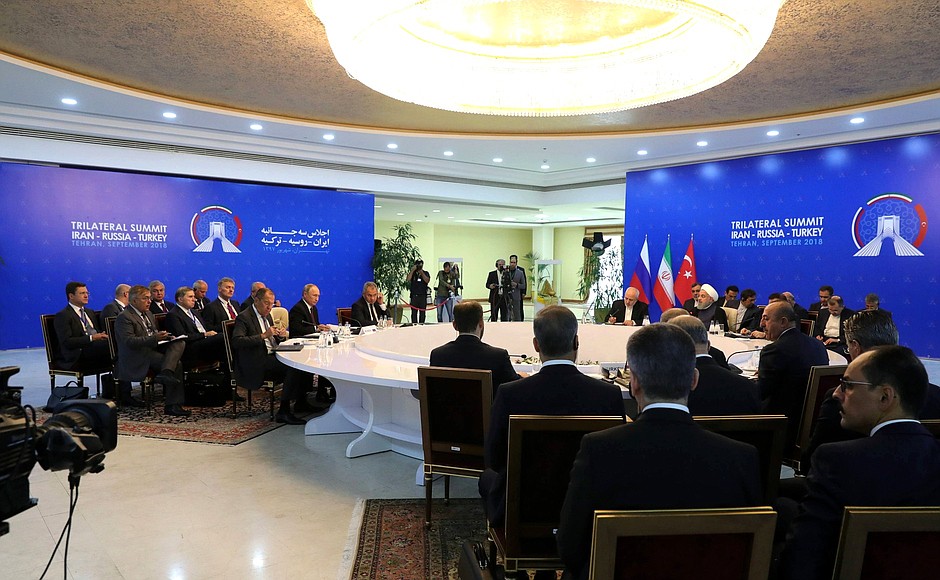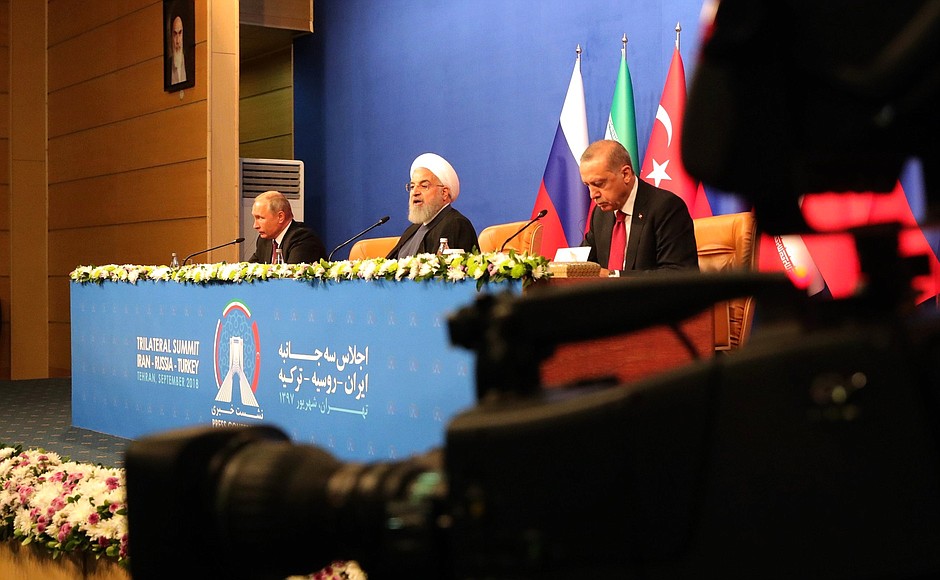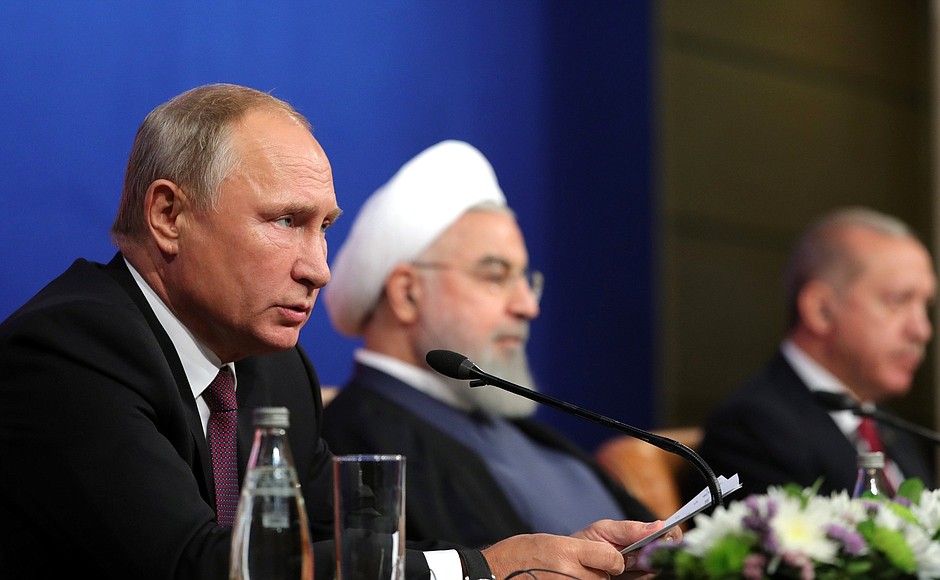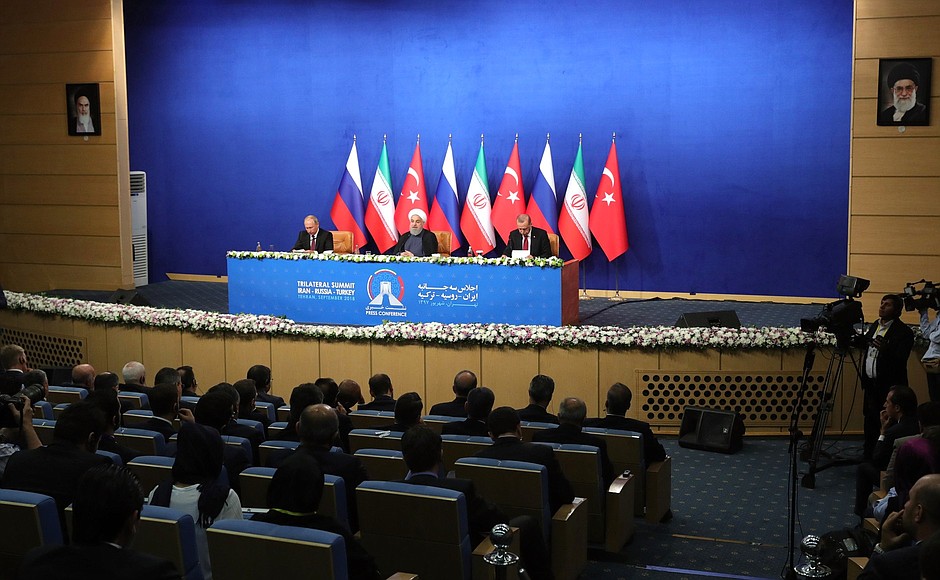The Presidents of Russia, Iran and Turkey discussed issues related to long-term normalisation of the situation in Syria, in particular, a set of additional measures to finally eradicate the stronghold of international terrorism, promote the political settlement process and solve humanitarian issues, including the creation of necessary conditions for the return of refugees and internally displaced persons.
Following the summit, Vladimir Putin, Hassan Rouhani and Recep Tayyip Erdogan adopted a Joint Statement. They also gave a joint news conference.
* * *
Speech at the meeting with President of Iran Hassan Rouhani and President of Turkey Recep Tayyip Erdogan
President of Russia Vladimir Putin: President Rouhani, President Erdogan, colleagues,
First, I would like to thank Mr Rouhani for the invitation to hold our trilateral meeting here in Tehran to discuss further joint steps by Turkey, Iran and Russia related to Syria.
Let me note that the decisions made at the previous summits of the states–guarantors of the Astana process are being successfully implemented.
We have made substantive progress in providing long-term normalisation in Syria. The stronghold of terrorism has almost been eradicated. More than 95 percent of Syrian territory has been liberated, 141 residential areas.
Currently, the remaining extremist groups are concentrated in the de-escalation zone in Idlib province.
Terrorists are making attempts to torpedo the ceasefire, and, moreover, to prepare and carry out various provocations, including those that involve chemical weapons.
Nevertheless, the successful implementation of our joint agreements has allowed us to make great strides towards a political settlement. We have taken concrete steps on intra-Syrian reconciliation, above all on site.
We can say with confidence that all the opportunities have been created for Syrians to determine the future of their country themselves.
In this context, I propose discussing further plans to implement step by step the decisions of the Syrian National Dialogue Congress held in Sochi this January. First of all, I am referring to establishing and launching the Constitutional Committee in Geneva, under of the auspices of the United Nations.
To achieve stable normalization it is necessary to facilitate the improvement of the socio-economic and humanitarian situation in Syria. Peaceful life is being gradually restored, security is being enhanced and civilian employment is growing on the territories returned to Syrian government control.
In this context, Russia proposed an initiative on international assistance in the return of the refugees and internally displaced persons to Syria. We are pleased to say that this initiative enjoys support from our Iranian and Turkish partners.
I would like to mention that along with the Centre for Refugee Reception, Allocation and Accommodation in Damascus, Moscow has established Interdepartmental Coordinating Headquarters. In addition, checkpoints have been opened on the border with Jordan and Lebanon. Over 15,000 people have returned home in a month and a half.
Russia is directly helping Syria on a regular basis by delivering food, medicines and other cargo to areas that were the hardest hit by military actions.
Overall it would be useful to be consistent in our joint actions in the humanitarian area so as to help Syria rise from ruins, restore its industry, agriculture and infrastructure, thereby making it possible for the Syrians to return home in large numbers.
Colleagues, let me repeat, that due to the painstaking efforts of Russia, Iran and Turkey, Syria is seeing impressive progress. I am confident that today’s talks will be productive, while the adopted decisions will make a tangible contribution to ensuring a final settlement in the Syrian Arab Republic.
Thank you for your attention.
